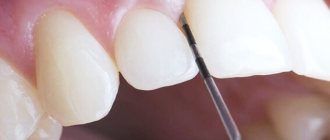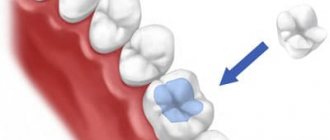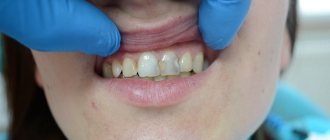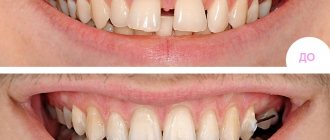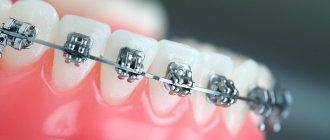Dental technician salarySalary as of May 25, 2021Where to studyDental technician coursesImportant qualities
A dental technician is a specialist in the manufacture of dentures. By the way, in 2021, the ProfGid career guidance center developed an accurate career guidance test. He himself will tell you which professions are suitable for you, and give an opinion about your personality type and intelligence.
What does a dental technician do?
A dental technician is a medical professional whose work involves the repair and manufacture of dentures and appliances. The technician is not always a doctor; he often has a paramedic education. He works closely with orthodontists, oral surgeons and dentists.
For this reason, it is customary for representatives of the profession to identify narrower areas of activity. For example, there is a direction of orthodontic technician. His responsibility is to create removable jaws and dentures.
Another feature of the dental technician profession is the abundance of tools. In his work he uses:
- device for stamping crowns;
- anvils;
- hammers;
- jigsaws.
Dental technicians also actively use 3D printers and programs that help with computer modeling of three-dimensional models of dentures.
What does orthopedics do?
Orthopedic dentistry is a broad area of medicine responsible for the prevention and elimination of damage and defects of the maxillo-speech apparatus. Specialists working in this field carry out different types of dental prosthetics:
- supported by metal implants;
- bridges;
- dental crowns;
- ceramic inlays;
- veneers;
- removable orthopedic prostheses.
Orthopedic dentistry restores the integrity of the dentition and the aesthetic beauty of the smile. Modern methods make it possible to correct serious damage and preserve the health and natural appearance of the teeth of adults and children.
What are the tasks of an orthopedic dentist?
Thinning enamel, chips, and carious cavities require urgent treatment. Otherwise, the functionality of the jaw is impaired, the bite worsens, and the gums become inflamed. A dentist whose specialty is orthopedics performs important tasks. His job is to diagnose, select a prosthetic method and restore damaged teeth.
The orthopedist’s task is to diagnose, select a prosthetic method and restore damaged teeth.
After a mandatory examination, the orthopedist offers different methods of restoration. Depending on the extent of the damage, these may be:
- minor correction with ceramic inlays;
Responsibilities of dental technicians
The list of responsibilities of a representative of this profession can include:
- working with patients;
- creation of prototypes of prostheses or implants and real models;
- repair and restoration of devices.
Also, a dental technician is someone who works with documents: draws up reports on materials, purchasing plans, etc.
To be able to competently and efficiently perform assigned tasks, a specialist must know:
- features of the materials used;
- purpose and characteristics of equipment;
- principles of creating prostheses and devices.
What problems should you consult a doctor for?
The main indications for which you need to see a doctor are:
- teeth wear down pathologically - crowns and veneers are used;
- advanced form of caries - the dentist cannot restore the tooth on his own, and the installation of crowns is necessary;
- complete destruction of one or more teeth - prosthetics are used through the use of pins;
- absence of one or more teeth – use of fixed, removable structures, dental implants;
- damage to a number of teeth - implantation, installation of crowns, etc. can be used.
Having teeth is an important component of human health. If teeth are missing, the functioning of the digestive tract, intestinal function is disrupted, and a number of other diseases develop. It’s not for nothing that all nutritionists recommend chewing food as thoroughly as possible.
If for one reason or another the tooth has been completely removed, it is recommended to contact a dental technician for further prosthetics.
Most often, patients aged 45+ turn to the technician’s services. Sometimes patients use the services of a specialist after accidents, jaw injuries, etc.
In other words, if it is not possible to restore a tooth from the root, or it is necessary to restore a whole row of teeth, the orthodontist is already powerless, and it is necessary to use the services of a technician.
What should a dental technician be able to do?
What a dental technician does requires high qualifications and compliance with certain requirements. Here are some of them:
- presence of specialized higher or secondary specialized education in the field of dentistry;
- a valid medical record;
- no medical contraindications.
There are serious health requirements for representatives. In this regard, persons with the following types of diseases cannot work according to their profile:
- impaired finger motor skills;
- chronic infectious diseases;
- epilepsy;
- nervous disorders;
- mental illness;
- visual and hearing impairments;
- dermatological diseases.
Orthopedics as a field of medicine
Orthopedics treats diseases of the musculoskeletal system as a whole. Orthopedists restore spinal curvatures and treat flat feet. An orthopedic dentist eliminates disorders and restores the chewing-speech apparatus. With the help of prosthetics, the doctor restores the integrity of the jaw, which allows a person to chew food normally and communicate with others.
Symptoms
You should consult an orthopedic dentist if:
- absence (loss or removal) of one or more teeth;
- partial or complete destruction of the dental walls;
- mobility or increased sensitivity of teeth;
- diseases of the gums or bones, for example, periodontal disease, periodontitis;
- cosmetic defects in appearance: different size, irregular shape, enamel pigmentation, any other violations in terms of aesthetics;
- detection of temporomandibular joint disease (TMJ);
- recommendations from a therapist or other specialized specialist who issued such a referral after an examination.
Who is an orthopedic dentist and what does he treat?
This specialist specializes in restoring teeth. He is often confused with an orthodontist, however, there is a big difference between these doctors. An orthodontist straightens crooked teeth and corrects problematic bites using braces and removable plates. An orthopedist partially or completely restores teeth using dentures. He is often called a prosthetist.
An orthopedic dentist or prosthetist eliminates many problems, which makes the patients’ lives comfortable and of high quality:
Improves quality of life and restores psychological comfort.
Due to the absence of one or more teeth, the patient loses self-confidence and feels constant discomfort when communicating with others.
Please note : Psychological complexes and stress can also cause pronounced defects in the dentition, for example, large gaps or chips. The person stops smiling widely, speaking openly and constantly controlling the position of his lips. Such tension can provoke the development of side diseases of the nervous system.
Restores chewing function
Chewing food thoroughly is the key to a healthy digestive system. Chewing dysfunction disrupts the functioning of the entire dental system, reduces muscle tone and slows down blood circulation in soft and bone tissues. The faster the doctor fixes the problem, the faster the patient’s general condition will improve. If the situation is neglected, an inflammatory process may develop, which will lead to periodontitis or periodontal disease.
Saves teeth
Let's imagine a situation: a patient came with dental tissue almost destroyed to the ground, which makes it impossible to install a filling, but the roots remained healthy. Common causes are advanced caries or injury. You can try to stop the destruction process by preserving the roots and nerve endings. An orthopedic dentist also deals with such cases.
Treats edentia
Patients who are missing all their teeth also turn to an orthopedist. He makes removable or fixed dentures and places implants that replace natural teeth. This is not just an opportunity to chew, but a complete return of communication skills and a comfortable stay among others.
The medical practice of the orthopedic office includes:
- restoration of tooth enamel and bone tissue while preserving its own root and nerve canals;
- installing a protective crown on a decaying tooth to stop further shedding and delamination of tissue;
- production and installation of prostheses;
- elimination of aesthetic defects in the dentition, such as cracks, chips, irregularities, pigmentation.
Medical protocols are clearly defined, so orthopedic dentists in qualified clinics always follow established rules and treatment regimens. This allows you to avoid negative consequences and dangerous side effects.
What does an orthopedic dentist do?
The area of competence of the prosthetist includes:
Installation of fixed dentures
Such structures include crowns, inlays, and veneers. These designs are securely fixed and are worn constantly.
Metal-ceramic crowns
The most common type of fixed prosthesis. At the base is a cap made of an alloy of cobalt, chromium and titanium, which is coated with a ceramic composition. This design imitates healthy teeth, lasts from 5 to 10 years and is quite affordable. Safety depends on the presence of impurities in the material, which can cause oxidation and inflammation of the gums.
Where to study to become a dental technician
You can get the necessary education at a medical college. And you can enroll in your chosen specialty only after the 11th grade of school. The duration of training is about three years. A dental technician can also study at a higher educational institution, where more in-depth training in the field will be offered.
Due to the fact that a dental technician is a medical professional, he needs to regularly improve his qualifications, master new working methods and the capabilities of innovative materials.
Which doctor puts crowns on teeth?
A crown is a fixed restoration of a tooth that restores form and function. Replacing a damaged (mostly pulpless) tooth, it hides its visible part.
A restorative procedure that will provide its updated function, shape and appearance to hide the non-productive state of damage, structural support and visual appeal is carried out by a prosthodontist.
He is skilled in both the clinical and technical aspects of prosthodontics and is able to oversee each primary dental case, providing personalized care. In certain circumstances, may undertake a combination of work as a doctor and a dental technician.
Specialization plays an important role in the formation of new perspectives regarding dental materials, their effect on the functions of the masticatory apparatus, as well as in the general principles of dental treatment, physiology and oral hygiene.
Dental technician salary
The income of a private practice specialist differs from the salary of a technician who works in an organization. The amounts are individual, as they depend on the chosen pricing policy, client base and region of work of the dental technician.
At the same time, a dental technician at a hospital or clinic with an impressive work experience can earn up to 150,000 rubles.
According to online employee search services, a specialist can count on the following salary:
- Minimum
- 20 thousand rubles. - The maximum
is more than 100 thousand rubles.
These salaries are for salaried employees. When working for yourself, a dental technician's salary can increase significantly.
Basic moments
By the way, dental technician is an ancient profession, because the first craftsmen who made dental prostheses from the teeth of animals, mainly mammals, appeared in the 7th century BC! Such masters worked in prehistoric Italy among the Etruscan tribes.
Despite the numerous graduates from medical universities, the profession is in demand. The problem is that most companies require craftsmen who are ready to get to work and make a profit without practical training. Of course, a common problem is acute here: without education it is impossible to find a job, without work you cannot get an internship, and without practice, few people need specialists. Interest in qualified personnel in this area is quite high.
The activities of a dental technician are closely related to dentists, since they are the ones who provide orders. The range of popular structures is wide, including not only prosthetics of various classes, but also orthodontic treatment structures. It is difficult for one specialist to cover the entire range of tasks, therefore there are several specializations, for example: - orthodontic technician. The master of this class works on devices that correct malocclusions; - ceramist. Processes metal ceramics to form the necessary structures; - renter. A professional at this level is engaged in making removable jaws.
In general, the technician’s activities cover artificial crowns of all common types, bridge structures, removable clasps necessary for the restoration of three or more teeth located nearby, and maxillofacial components.
In addition to understanding processes and techniques, it is necessary to master a wide range of tools and equipment. Each type of material and structure uses its own equipment, for example, the simplest anvils and hammers for beating off crowns, stamping equipment, jigsaws and other types of devices. Often when working you have to handle materials that can be harmful to health. For example, fine particles produced during grinding are not recommended to be inhaled. When heated, some substances produce dangerous vapors and compounds. Radiation also affects technology, since a small amount of uranium can be added to the ceramic composition to create an ideal shine. Of course, these amounts are negligible for real harm, but it is imperative to work in protective equipment (gloves, masks and goggles) to prevent negative manifestations in the future. For the same purpose, ventilation must be installed in the room, and some stages of work are even carried out in sealed boxes.
Education and specifics of activity
To work in this field, you need a university education in the specialty “Dentistry” or “Orthopedic Dentistry” at the college or technical school level. In the second case, you will receive only a basic course in this area, but you can already count on getting a job, and therefore valuable experience.
Higher education in this area is not necessary; secondary education will be sufficient. An additional positive criterion will be the completion of special courses, for which you will be provided with an array of data and some practical advice necessary to act as a specialist.
It is obvious that a dental technician performs tasks that are far from management activities. All information for his work is provided by an orthopedic dentist, whose assistant is often a technician. The doctor provides plaster casts, as well as accompanying recommendations on the selection of shape, color and a number of fundamental indicators of the final design. Based on the obtained parameters, a model is developed, and suitable materials are selected, again based on the preferences of the client or the attending physician. Then the prosthesis is modeled, followed by casting on an induction machine. First, work is carried out with a viscous material (wax), and then with metal ceramics, metal or nylon. After all stages of structure formation, including the introduction of fasteners, grinding and polishing occurs.
There are problems that differ from the classic ones, usually associated with the patient’s unusual facial type or non-standard oral cavity. Such changes can be congenital or occur after serious injury. In this case, a photograph or photographs of the oral cavity may be required. Work using the CAD/CAM technique, for example, milling a pre-milled abutment, will require high qualifications.
Obviously, this type of work is predominantly mental, but aspects of physical work are not excluded. Hard physical work cannot be called, but it requires high accuracy, quality, attention and careful preliminary analysis of the collected information. It is impossible to achieve high results without reflection and conclusions related to the analysis of data from the dentist.
It is important that this is not seasonal work or temporary employment. The trends in the deterioration of dental health with age are obvious, so prosthetics will be relevant for decades in the foreseeable future. Naturally, technology is being improved and previously relevant techniques are no longer taken seriously, so over time it may be necessary to improve your skills or take special courses to master new technology.
You can work in your specialty in various institutions:
— medical centers; - clinics; - clinics; - hospitals; - sanatoriums; — nursing homes; — at resorts with dental treatment facilities; - in private offices.
Of course, most of the beginning craftsmen are focused on creating their own business in the future. This is quite possible, but requires serious investments to purchase equipment and prepare the premises.
In terms of career growth, things are not so rosy. The problem is that the profession basically does not have a career path, so the only prospect is to run your own business. At the same time, the specialist’s scope of knowledge must be extensive, especially if it is intended to create various structures from the entire range of materials and common forms. It is necessary to have extensive knowledge of medical terminology and understand common diseases of the oral cavity and teeth. In the process of work, it is important to have an understanding of the chemical processes occurring in certain substances, materials and compositions. It is necessary to have an understanding of the technical aspects related to human anatomy, as well as to understand the main aesthetic aspects.
Among the physical qualities, motor skills and vision are important, since you have to work with small details, as well as composure, perseverance and patience. Such common requirements as accuracy and responsibility are generally important for any activity, especially if it is necessary to maintain sterility and caution with potentially hazardous materials and instruments. Accuracy is extremely important, since any microscopic defect in the shape of the prosthesis can lead to patient discomfort and even microtrauma.
The technician’s work is not without a creative component, since the finished teeth must be similar to ideal natural ones, or have the shade of the patient’s preserved components. A number of structures are equipped with metal fasteners, which must be created and positioned as discreetly as possible.
Salary
And now the most important question that you have been waiting for throughout the entire story: what salary can a technician expect? It’s worth mentioning right away that the figure largely depends on qualifications, quality of work, customer flow and the number of orders completed per month.
Most employers calculate payment based on the salary, which is fixed and negotiated at the employment stage. There is also a bonus part, but it depends on the employee’s performance for a certain period.
Another aspect that affects the price tag is specialization. The most expensive type of prosthetics is fixed structures, since they are expensive in themselves due to their complexity and labor intensity, as well as the materials used. Removable and partially removable structures are rated lower, but they are easier to make.
